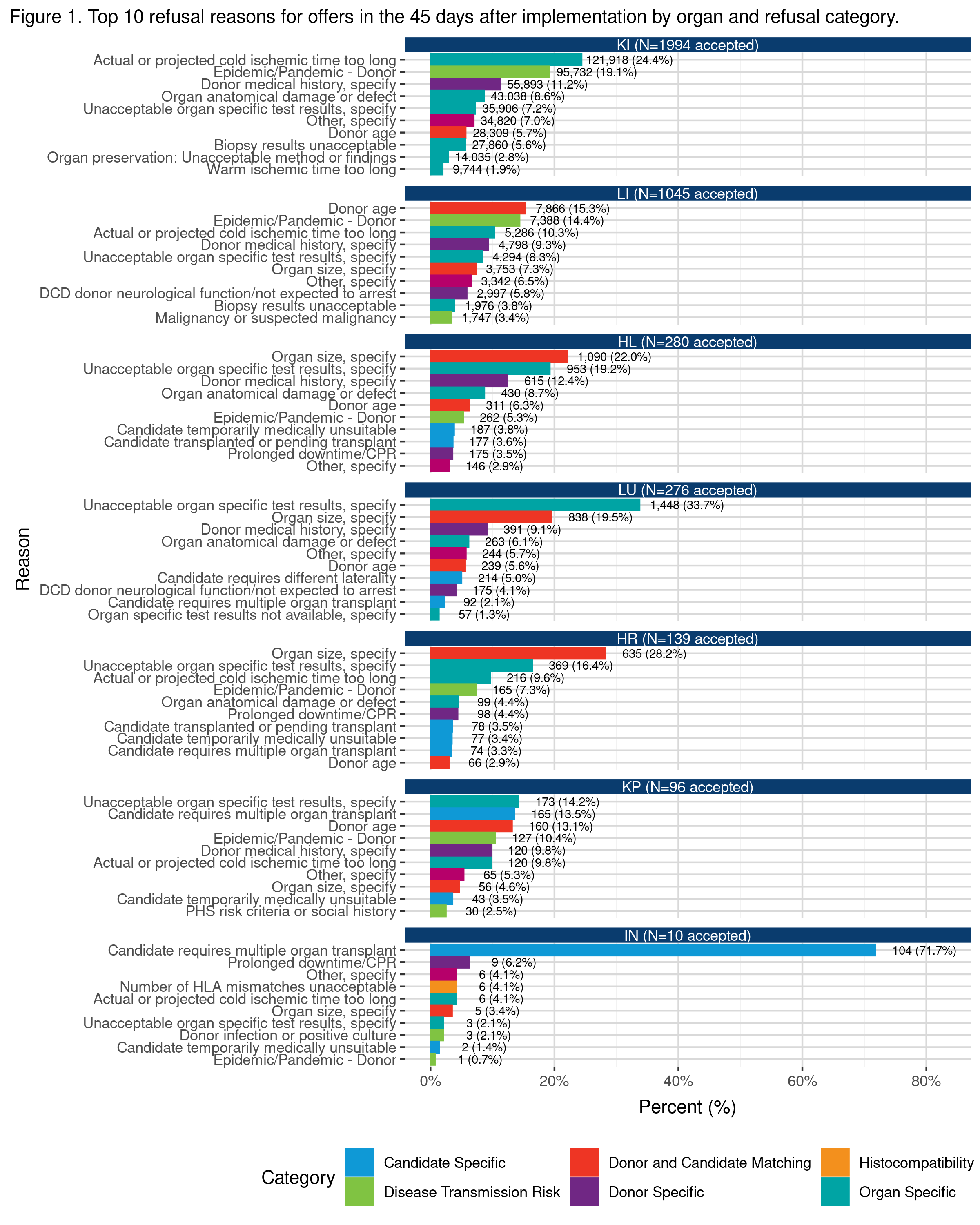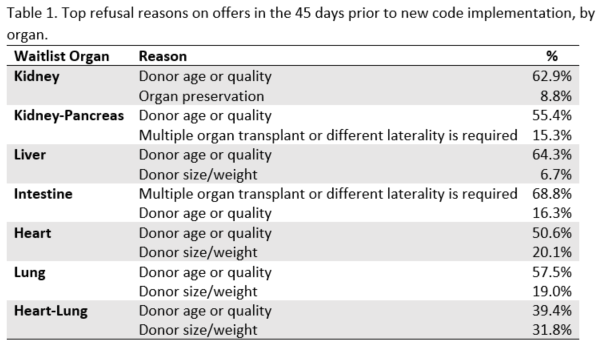Early Evaluation Of The Impact Of Change In UNet Organ Refusal Code Reasons On Us Transplant Center Organ Offers
1United Network for Organ Sharing, Richmond, VA, 2Columbia University Medical Center, New York, NY, 3Emory University, Atlanta, GA
Meeting: 2022 American Transplant Congress
Abstract number: 9071
Keywords: Allocation, Donation, Monitoring, Organ Selection/Allocation
Topic: Clinical Science » Public Policy » 21 - Non-Organ Specific: Public Policy & Allocation
Session Information
Session Name: Non-Organ Specific: Public Policy & Allocation
Session Type: Poster Abstract
Date: Monday, June 6, 2022
Session Time: 7:00pm-8:00pm
 Presentation Time: 7:00pm-8:00pm
Presentation Time: 7:00pm-8:00pm
Location: Hynes Halls C & D
*Purpose: On December 2, 2021 a new set of organ refusal codes was implemented in DonorNet. These new codes were meant to provide more relevant and granular options for transplant centers to use when declining organ offers, and greater insights into acceptance and refusal practices.
*Methods: We compared the distribution of primary organ refusal reasons on offers (n=384,087 pre, n=564,847 post) prior to the final acceptor in the 45 days before and after implementation among 251 U.S. transplant centers. This included 3,307 matches pre- and 3,014 matches post-implementation. Bypassed offers (n=701,910 pre, n=551,213 post) were excluded, as were offers from matches (n=4,229 pre, n=4,966 post) with no final acceptor.
*Results: Previously, the most frequently used refusal code was ‘Donor age or quality’ (table 1). This was the case for all organs except intestine, which used ‘Multiple organ transplant or different laterality is required’ (69%) followed by ‘Donor age or quality’ (16%). Under the new system, the top refusal reason used for each organ differed with the new codes, including the category or type. The top refusal reason for heart, heart-lung, and liver was in the donor and candidate matching category, while the top reason for kidney, kidney-pancreas, and lung was in the organ specific category. The top refusal reason for intestines was candidate specific. For all organs except intestines, a more even distribution of reasons was used rather than one homogeneous category (figure 1).
*Conclusions: Initial analysis of the new refusal codes demonstrate more granular and diverse reasons for organ offer refusal than with the prior options which should help understand the reasons for declining an organ offer and inform future iterative changes in organ allocation.
To cite this abstract in AMA style:
Noreen S, Martinez C, Mohan S, McCharen K, Placona A, Patzer R. Early Evaluation Of The Impact Of Change In UNet Organ Refusal Code Reasons On Us Transplant Center Organ Offers [abstract]. Am J Transplant. 2022; 22 (suppl 3). https://atcmeetingabstracts.com/abstract/early-evaluation-of-the-impact-of-change-in-unet-organ-refusal-code-reasons-on-us-transplant-center-organ-offers/. Accessed February 18, 2026.« Back to 2022 American Transplant Congress


